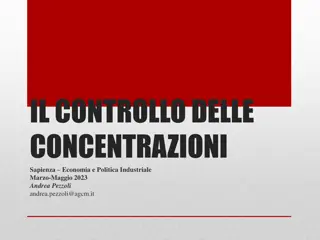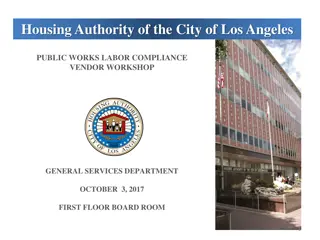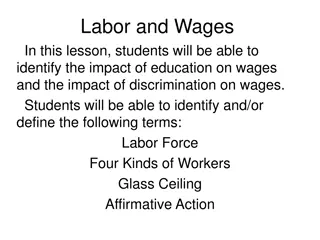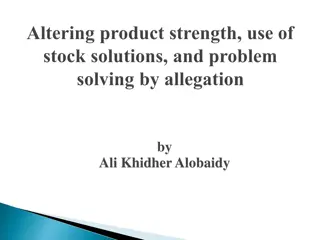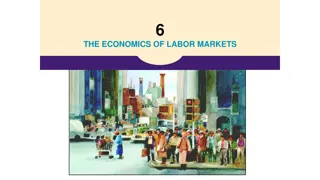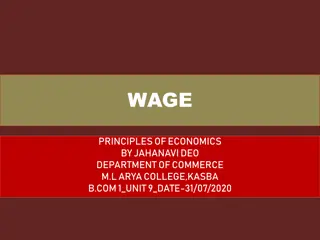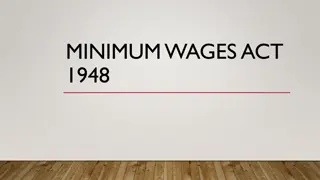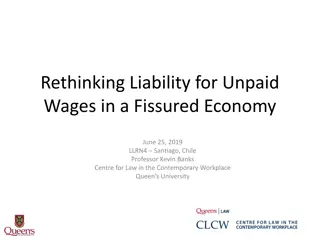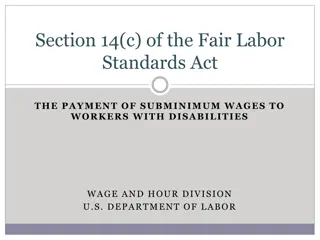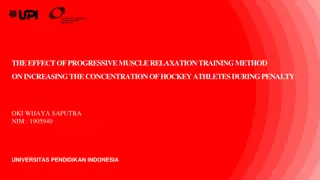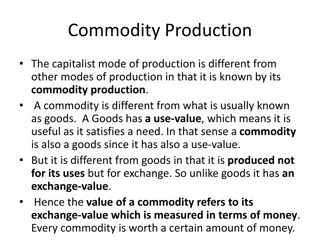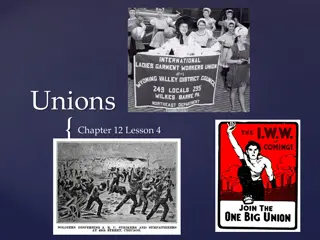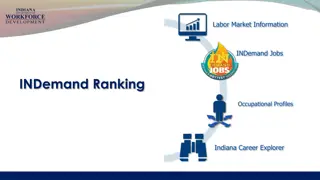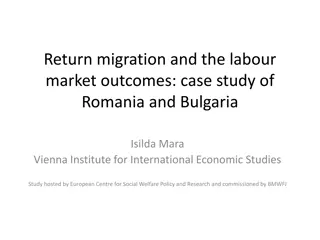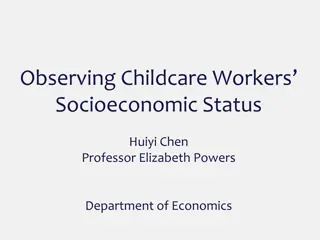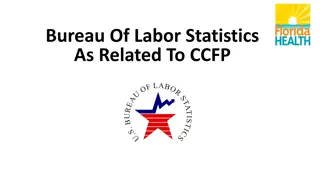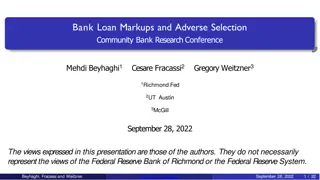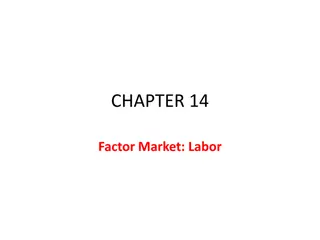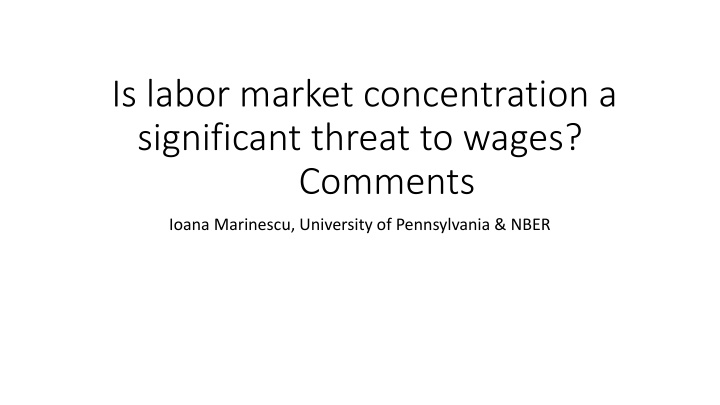
Labor Market Concentration Impact on Wages
Antitrust enforcement plays a crucial role in addressing labor market concentration and its impact on wages. Factors such as anti-poaching agreements, non-competition agreements, unionization, and minimum wages also influence the dynamics of employer power, competition for workers, and wage levels in different industries.
Download Presentation

Please find below an Image/Link to download the presentation.
The content on the website is provided AS IS for your information and personal use only. It may not be sold, licensed, or shared on other websites without obtaining consent from the author. If you encounter any issues during the download, it is possible that the publisher has removed the file from their server.
You are allowed to download the files provided on this website for personal or commercial use, subject to the condition that they are used lawfully. All files are the property of their respective owners.
The content on the website is provided AS IS for your information and personal use only. It may not be sold, licensed, or shared on other websites without obtaining consent from the author.
E N D
Presentation Transcript
Is labor market concentration a significant threat to wages? Comments Ioana Marinescu, University of Pennsylvania & NBER
Antitrust enforcement: merger review Marinescu and Hovenkamp (2018) Bivens, Mishel and Schmitt emphasize our finding that even though a majority of markets are highly concentrated, they do not represent a majority of workers. For antitrust enforcement, it is enough to find one market where we can reasonably predict that a merger will lead to anticompetitive wage suppression Since 54% of markets are highly concentrated and another 11% are moderately concentrated, many mergers have the potential to significantly lessen competition for workers in at least one market
Anti-poaching agreements Bivens, Mishel and Schmitt point out that concentration as we measure it is but one aspect of employer power. I agree. Agreements by companies not to poach each other's workers are unlawful and contribute to increasing effective labor market concentration by limiting workers' opportunities. Anti-poaching agreement shows that two companies compete for workers in the same market, and that collusion is profitable. Anti-poaching agreement is evidence that a merger will likely lead to anti-competitive wage suppression. Attorney generals in 11 states are investigating anti-poaching agreements among fast-food franchises, and Washington state already got agreements to end the practice with 7 chains.
Non competition agreements Non-competition agreements limit workers' opportunities to work for a company's competitors after they leave their employer. Non-competition agreements increase labor market concentration by limiting the number of employers who can effectively compete for workers. Non-competition agreements should be added to other factors mentioned in the Merger Guidelines as affecting the significance of a given concentration level.
Unions Benmelech, Bergman and Kim (2018) show that concentration has no impact on wages in industries with high unionization. Increasing union power may reduce the effects of employer concentration, but some qualifiers: Empirically, new unions in 1984-1999 did not increase wages (DiNardo and Lee, 2004). Theoretically, adding worker power on top of employer power takes us further away from the competitive equilibrium with unknown welfare effects: more research needed on second-best equilibiria
Minimum wages Could reduce the adverse impact of concentration on low-wage workers. While large enough minimum wage increases in low productivity sectors have been shown to reduce employment (Machin, Manning, Rahman, 2003, Harasztosi & Lindner, 2018) employment losses due to the minimum wage were typically zero for past US minimum wage increases (Cengiz et al, 2018).
Universal basic income Universal basic income (UBI): cash transfer that everyone within a geographic/political territory receives unconditionally on a regular and long-term basis UBI increases the outside option of low-wage workers, and may limit the adverse effects of labor market concentration on wages. But will UBI decrease employment? Many studies find no statistically significant effect of an unconditional cash transfer on the probability of working, including Jones & Marinescu (2018). In the studies that do find an effect on labor supply, the effect is small: a 10% income increase induced by an unconditional cash transfer decreases labor supply by about 1% (Marinescu, 2018).
Conclusion: addressing wage stagnation given employer concentration Given limited enforcement so far by antitrust authorities, much scope for increasing labor antitrust cases. This helps all workers but effects may be limited and take time to materialize. Stronger unions may help workers across many sectors. Minimum wages and universal basic income can help low wage workers.

